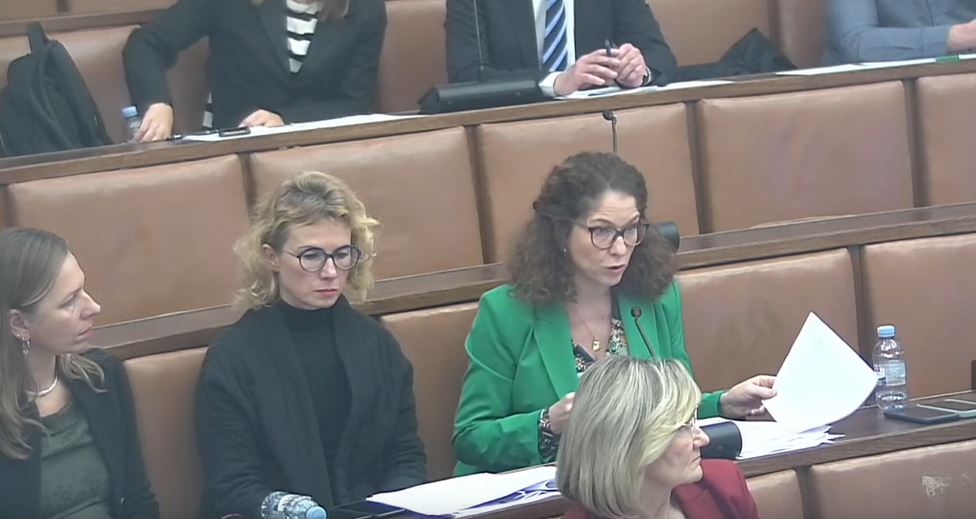On 19 January 2024, Ombudswoman Tena Šimonović Einwalter participated in a thematic session of the Environment and Nature Conservation Committee of the Croatian Parliament, dedicated to the fire at the Drava International factory in Osijek and similar incidents at waste recovery facilities in Croatia.
Following the fire at the Osijek factory, Ombudswoman Šimonović Einwalter launched an inquiry on her own initiative, to examine the impact of the incident on the constitutionally guaranteed human right to a healthy life and a healthy environment, i.e. the internationally recognised human right to a clean, healthy and sustainable environment.
Based on the results of the analysis of soil, water and food conducted by accredited institutes and laboratories, the fire in Osijek does not appear to have had a significant short-term impact on human health. However, the Ombudswoman stressed the need to monitor potential long-term effects, and called for the opinion and clarification of the Croatian Agency for Agriculture and Food regarding samples of food and water in which elevated levels of microplastic particles were detected.
Should it prove necessary, the Ministry of Health should monitor and assess the health status of residents living near the factory, in order to determine whether the fire has had long-term health consequences. What is particularly concerning in this case is that the factory’s own workers were accommodated on its premises—placing them at a heightened risk of harm—not only during the incident itself, but also due to the fact that they returned to the same accommodation shortly after the fire had been extinguished.
Equally alarming are publicly available data suggesting that the amount of waste stored at the site far exceeded the legally permitted volume. This underscores the need for regular monitoring of such facilities and the imposition of effective measures to prevent unlawful conduct that endangers life, health and the environment. In addition to establishing accountability in this specific case, the Ombudswoman emphasised that prevention is key to avoiding such practices.
It is therefore essential to consider similar scenarios in advance, before a fire breaks out—particularly because these events can have devastating consequences. As an example, she cited the threat of fire at the former Istraplastika factory, where several thousand tonnes of illegally dumped waste pose a serious hazard. In that case too, the Ombudswoman initiated an inquiry and reported on it to the Croatian Parliament in the 2022 Ombudswoman’s Report. “This is a clear threat to the safety and health of the citizens of Pazin, which must be addressed without delay,” she underscored.
Finally, she strongly criticised the practice whereby certain companies persistently violate the Waste Management Act and related regulations, simply paying the penalties incurred—penalties which may be high, but which they can afford given their profits. “Breaking the law and paying a string of misdemeanour fines because it’s profitable cannot be a business model—especially not when such practices jeopardise human health and the environment,” the Ombudswoman concluded. She called for legislative changes and further strengthening of the capacities of supervisory bodies to ensure more frequent and higher-quality inspections, as well as timely and effective measures imposed on companies.
The thematic session of the Committee on Environment and Nature Protection was also attended by Members of Parliament, representatives of various relevant executive authorities, local and regional self-government units, experts, and civil society organisations.
The full discussion is available in the recording published by the Croatian Parliament here.


